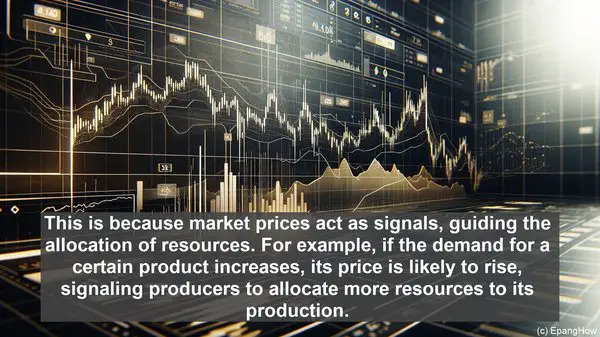Introduction: The Essence of Efficiency
Hello everyone! Welcome to our article on market efficiency and allocative efficiency. When it comes to economics, efficiency is a key aspect. It’s all about achieving the maximum output from limited resources. Today, we’ll be focusing on two specific types of efficiency: market efficiency and allocative efficiency. While they may sound similar, they have distinct meanings and implications. So, let’s dive in!

Market Efficiency: The Dynamics of Trading
Market efficiency refers to the degree to which prices in a market reflect all available information. In an efficient market, prices adjust rapidly and accurately to new information. This means that it’s challenging to consistently outperform the market by making trades based on publicly available information. Efficient markets are characterized by active trading, as participants believe they can’t consistently beat the market. The concept of market efficiency is closely linked to the efficient market hypothesis, which suggests that it’s difficult to consistently achieve above-average returns in an efficient market.

Allocative Efficiency: The Art of Resource Allocation
Allocative efficiency, on the other hand, focuses on the allocation of resources in an economy. It’s all about ensuring that resources are distributed in a way that maximizes societal welfare. In an allocatively efficient economy, resources are allocated in such a way that no reallocation can make one individual better off without making another worse off. This concept is often associated with the Pareto efficiency principle, which states that an outcome is efficient if it’s impossible to make someone better off without making someone else worse off. Achieving allocative efficiency requires a balance between the production of goods and services that society demands and the available resources.
The Relationship: Market Efficiency and Allocative Efficiency
While market efficiency and allocative efficiency are distinct concepts, they are interconnected. In an efficient market, where prices accurately reflect information, resources are more likely to be allocated efficiently. This is because market prices act as signals, guiding the allocation of resources. For example, if the demand for a certain product increases, its price is likely to rise, signaling producers to allocate more resources to its production. On the other hand, if the demand for a product declines, its price will likely fall, indicating a reallocation of resources may be necessary. Thus, market efficiency can contribute to allocative efficiency by facilitating the flow of information and resources.
Implications and Real-World Examples
The implications of market efficiency and allocative efficiency are far-reaching. In an efficient market, investors may find it challenging to consistently outperform the market, as prices already reflect all available information. This has led to the rise of passive investment strategies, such as index funds, which aim to replicate the performance of a market index rather than actively selecting individual securities. On the other hand, allocative efficiency is crucial for overall economic welfare. When resources are allocated efficiently, it means that society is getting the most out of its limited resources. This can lead to higher productivity, economic growth, and improved living standards. However, achieving allocative efficiency is not always straightforward, as it requires a deep understanding of market dynamics and the complex interplay of supply and demand.
